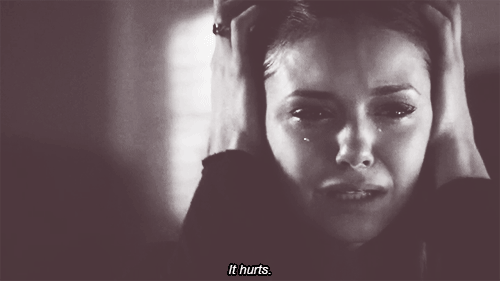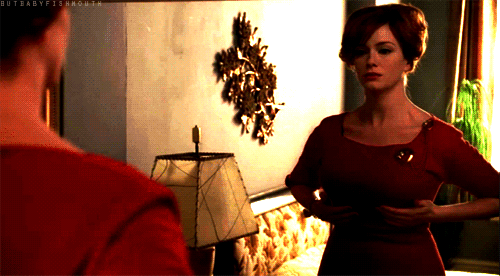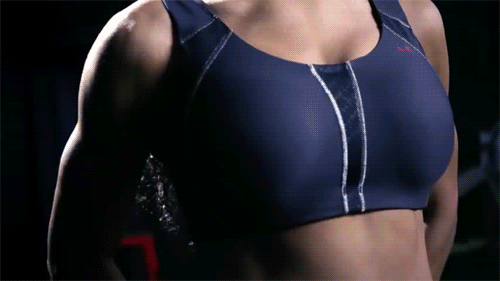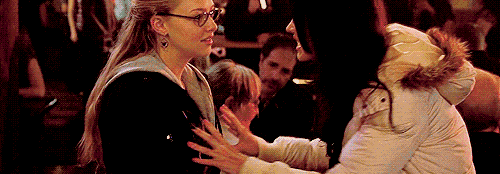7 (Totally Normal) Reasons Your Boobs Hurt — Don't Freak Out!
It might have to do with your daily Starbucks trip.
 weheartit
weheartit When your girls get tender and don't-touch-me sore, yes, it's annoying, but it's generally no cause for concern. Here's a look at several common (read normal) reasons your girls may be screaming out, and how to give them some much-needed TLC.
1. You're PMSing
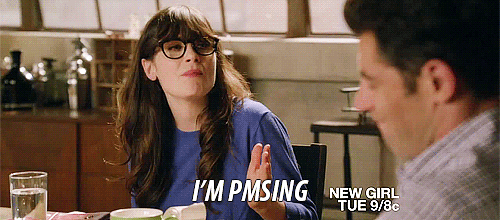
gurl
The most common cause of breast pain is a change in hormones that comes along with your period. This normal body response to shifts in estrogen typically manifests in swelling and tenderness on the day before your period begins and the first day of your flow, says Taraneh Shirazian, M.D., assistant professor of obstetrics, gynecology and reproductive science at the Icahn School of Medicine at Mount Sinai in New York.
This type of boob soreness is called cyclic pain, since it's related to your menstrual cycle. The good news: It should go away when your period ends. Birth control pills can help, says Shirazian, since they prevent ovulation and keep estrogen levels stable. And if you'd rather the skip the OTC pain reliever, primrose oil supplements may also ease soreness, she says.
2. You're Upping Your Workouts
Maybe you did an impressive round of pushups or dove into a serious new weight-lifting routine. This may seem like breast pain, but the discomfort actually stems from the muscles underneath the breasts. "There are the pectoral muscles there," explains Shirazian, and this set of muscles lying right under the breast tissue tightening and relaxing is actually the source of this tenderness.
Get relief by applying heating pads and taking a pain reliever as directed, suggests Shirazian.
3. You Pulled Something
So maybe you haven't been hitting the gym harder, but were your lifting furniture or heavy bags that may have strained those pectoral muscles? If so, that soreness might actually be coming from the muscles underneath your breast tissue again, says Shirazian. You can treat it the same way you would above, with heat or OTC pain relievers.
4. Your Bra Doesn't Fit Properly
The wrong lingerie can have pretty serious consequences for your chest. If your bra is too tight or the cup is too small, the underwire may be pushing against your breast (All. Day. Long.), leading to sore boobs, says Shirazian. And if you're not supported enough, all that up-down-and-all-around movement throughout the day can lead to breast tenderness. Use these tips to find a bra that fits.
5. Your Sweat Session Lacks Support
Especially if your breasts are larger, it's crucial to get the proper support when exercising to keep those babies from bouncing all around and pulling on the breast tissue, says Shirazian. In fact, a recent study found that one in three marathon runners report breast pain.
To remedy this, get fitted for a proper sports bra and make sure that nothing is digging in, spilling over, or not fitting perfectly when you jump around in the fitting room.
6. You Have Lumpy Breasts
If you've been identified as a women with lumpy breast tissue (technically known as fibrocystic breast tissue), then you are probably well acquainted with breast tenderness linked to your menstrual cycle.
According to the National Breast Cancer Foundation, this bumpy, uneven breast tissue is actually characterized by fluid-filled cysts, and it's not necessarily linked to breast cancer. However, they may be more sensitive to hormonal changes.
7. You're Taking in Too Many Lattes
While coffee and tea may not directly cause breast pain, some studies have shown that cutting out caffeine can help alleviate discomfort, especially for women with fibrocycstic breast tissue. If your breasts feel particularly lumpy and you've got a three-cup-a-day habit, ask your doctor if you should consider cutting down.
In general, temporary breast soreness and sensitivity shouldn't raise any red flags, nor should it send you running to the doctor's office. It usually just lasts a few days then vanishes from thin air. In the unlikely event that the pain lingers around or gets worse, then it's time to see your physician.
Also, be in the habit of regularly giving your breasts the once-over to make sure there aren't any changes in appearance, texture, or tenderness. If you notice anything out of the ordinary, bring it up with your doctor.
More content from Women's Health:

